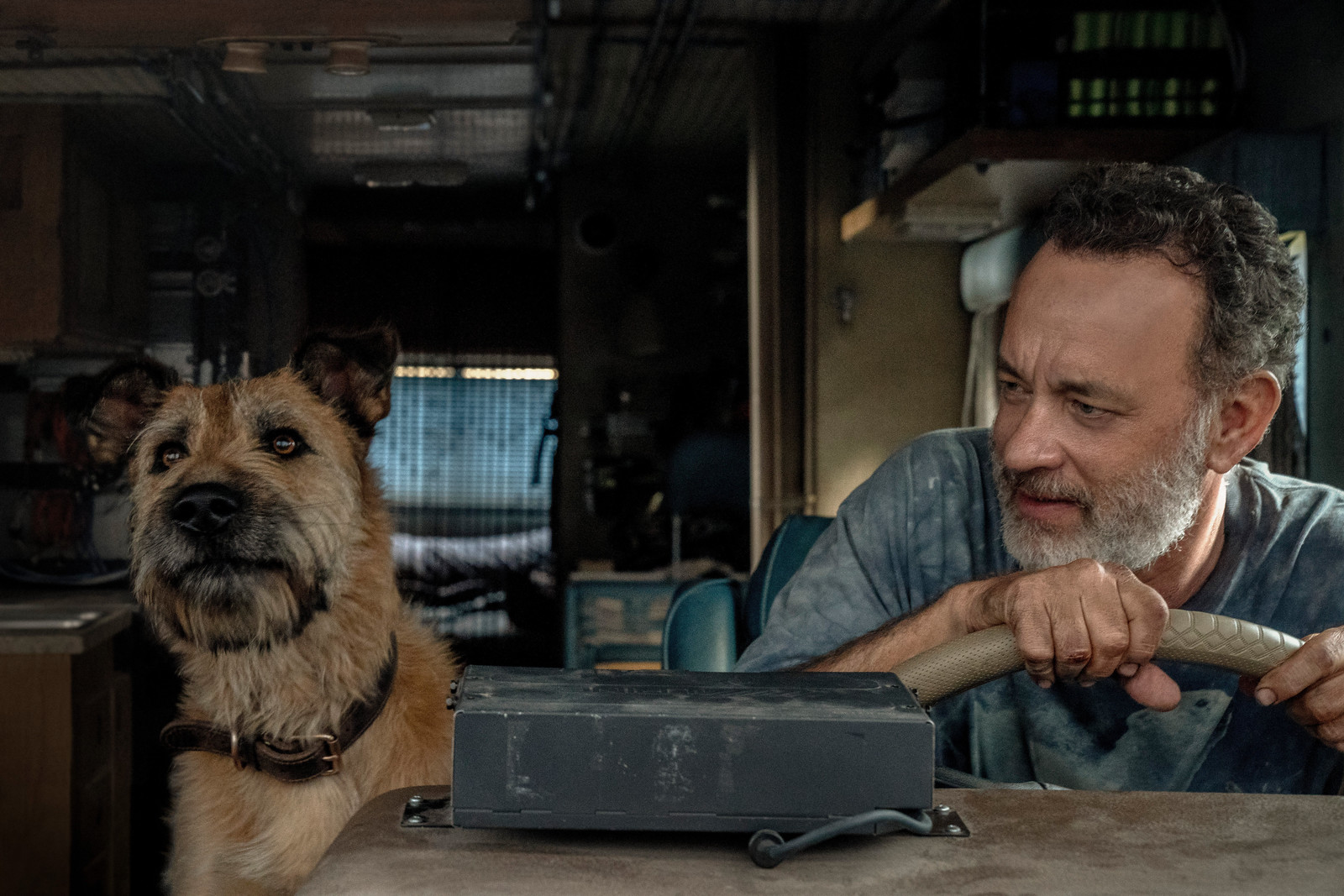
[ad_1]
Finch debuts this Friday on Apple TV+, so I caught up with director Miguel Sapochnik to learn more about what makes this Tom Hanks sci-fi tale tick.
What is it about the end of civilization that people find so fascinating?
I would say, one of the best things to write is the beginning or the end of something. In the middle is always a mess. And I feel like a movie about the beginning of mankind or humankind… it’s been done, right?
So now, we are definitely fixated with our own demise. It’s an interesting moment for us all, and I think probably reflected by [the character] Finch. Finch is starting to look back on everything that he’s done and wondering…what did he actually achieve? Was it worth it? It’s a point of reflection.
I definitely feel like movie storytelling right now is our point of reflection, where we have to look at ourselves and wonder about the choices that we made and figure out whether we’re prepared to make the changes that need to happen in order for us to continue to survive.

Do you think Finch is an optimistic, hopeful story, despite being focused on the end of humanity?
I do, actually. At the same time, I feared my own personality might overindulge itself with the dark side of nature and I feel like something definitely came out of it.
I showed [Finch] to a couple of friends after I’d finished it. When you’ve just finished a movie, you’ve lost all perspective as to what it is that you’ve really made. And I showed it with full expectation of them to smile politely and say, “interesting” or something like that. And they laughed. A lot. All the way through it. And then they cried at the end…and they said that it was lovely. And I felt I’d never had that experience before.

All Finch has left is a dog and a robot. I wanted to start with the dog — what do you think it represents? How does that play out in the story set amidst the end of days?
One of the turns that I always liked in the script is that you meet this guy, [and] he’s building a robot to look after his dog. So he really likes this dog. That’s his focus of attention. He doesn’t like humans. He’s obviously had bad experiences with humans….And then gradually, this story unfolds and you realise that the dog is the survivor of a traumatic event he experienced when he was younger, right in the midst of the apocalypse. The dog means something to him. In fact, the dog is a reminder of his failure as a human being, to his cowardice.
There’s something really engaging about the idea that he has a super strong bond with this dog, so that the dog can remind him every day of what a coward he is. The decision to make sure this dog survives, beyond Finch’s life – it’s an act of desperation…he cannot let this dog perish, he’s got to make this dog survive, because somehow that is hope. Interestingly, the dog itself doesn’t give a sh*t. It’s just happy to be there. Throwing the ball is the dog’s happiest moment. I found there was something beautifully simple and eloquent about that.

Let’s talk about Jeff the robot. I read a book once that theorized perhaps the natural end point for organic life is to eventually transform into artificial life. Does Jeff represent a way for humanity’s legacy to go on?
Jeff the robot is human 2.0. We were looking for a way to explore humanity rather than the depths of the potential depravity of humanity.
Jeff, he’s potentially the best and the worst of us. And what he has that Finch has lost is optimism and hope. He also has naivety, which is terribly dangerous in the wrong hands. He also has a stubbornness, an inability to listen properly, and an attitude that is, at times, deeply frustrating to all concerned. But, I think that idea of hope and optimism in the middle of an apocalypse is something unique. Something to be nurtured, not pushed down.

You’ve directed some of the biggest episodes of Game of Thrones, episodes with massive-scale battle scenes. Was Finch a different or complementary experience to your previous work?
I think complementary is the key word. At the same time, the way I try to approach those big battle scenes is to look for the intimate moments…action gets very boring very quickly if it has no character motivation, or if it has no real point to it.
If you’re playing Call of Duty, the real power of those games is the ability to make you feel fear, or triumph, the gamut of emotions when you’re in the thick of this epic, intimate, or claustrophobic experience. Trying to hone in on that personal point of view of a character in a film elevates any action or any context that you would put it in. PS5 console owners can enjoy six months trial access to Apple TV+ for no additional cost. Click here for full details, terms, and Frequently Asked Questions.
[ad_2]





